Advanced electromyography testing that pinpoints exactly what’s causing your muscle weakness, numbness, or tingling.
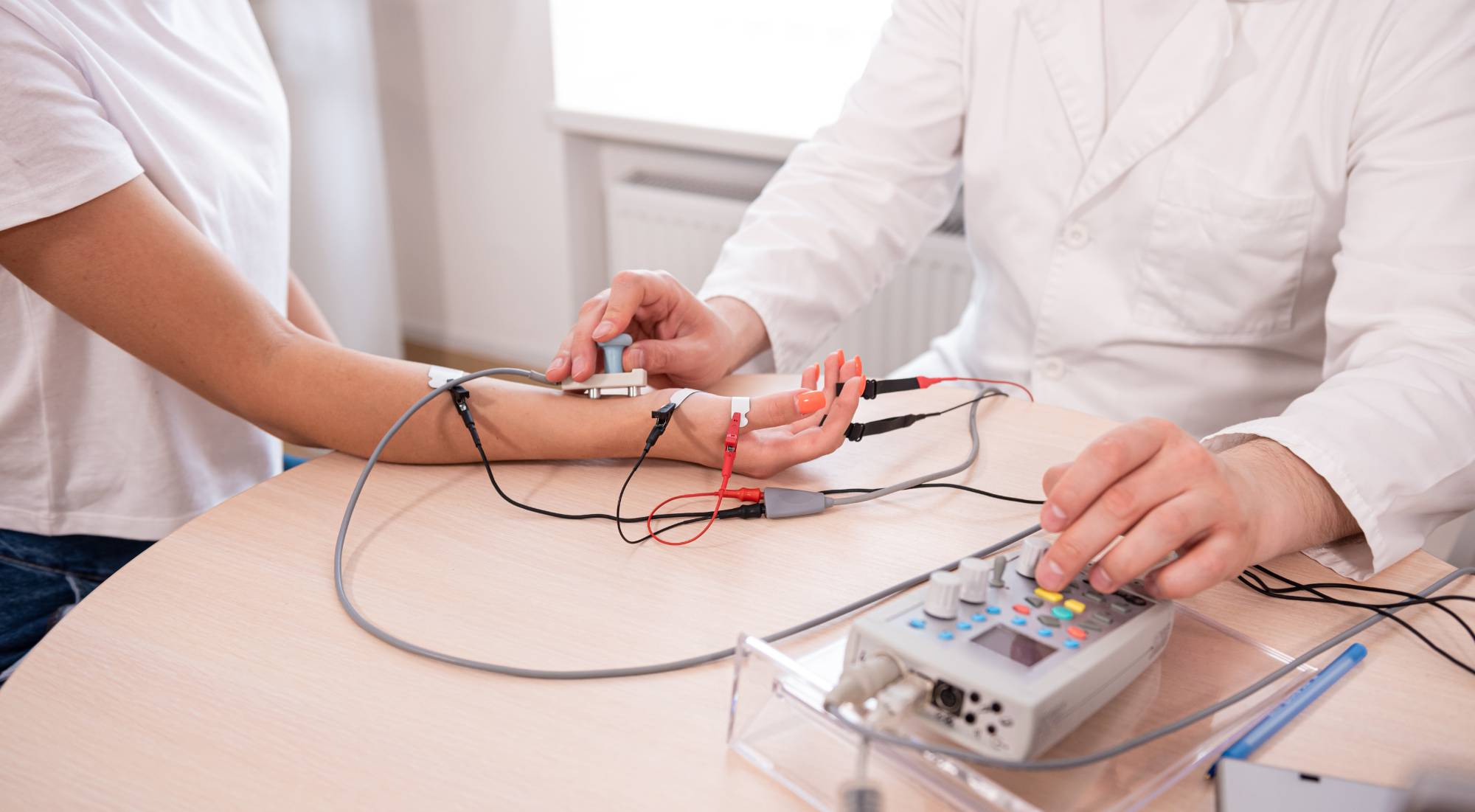
Reviews
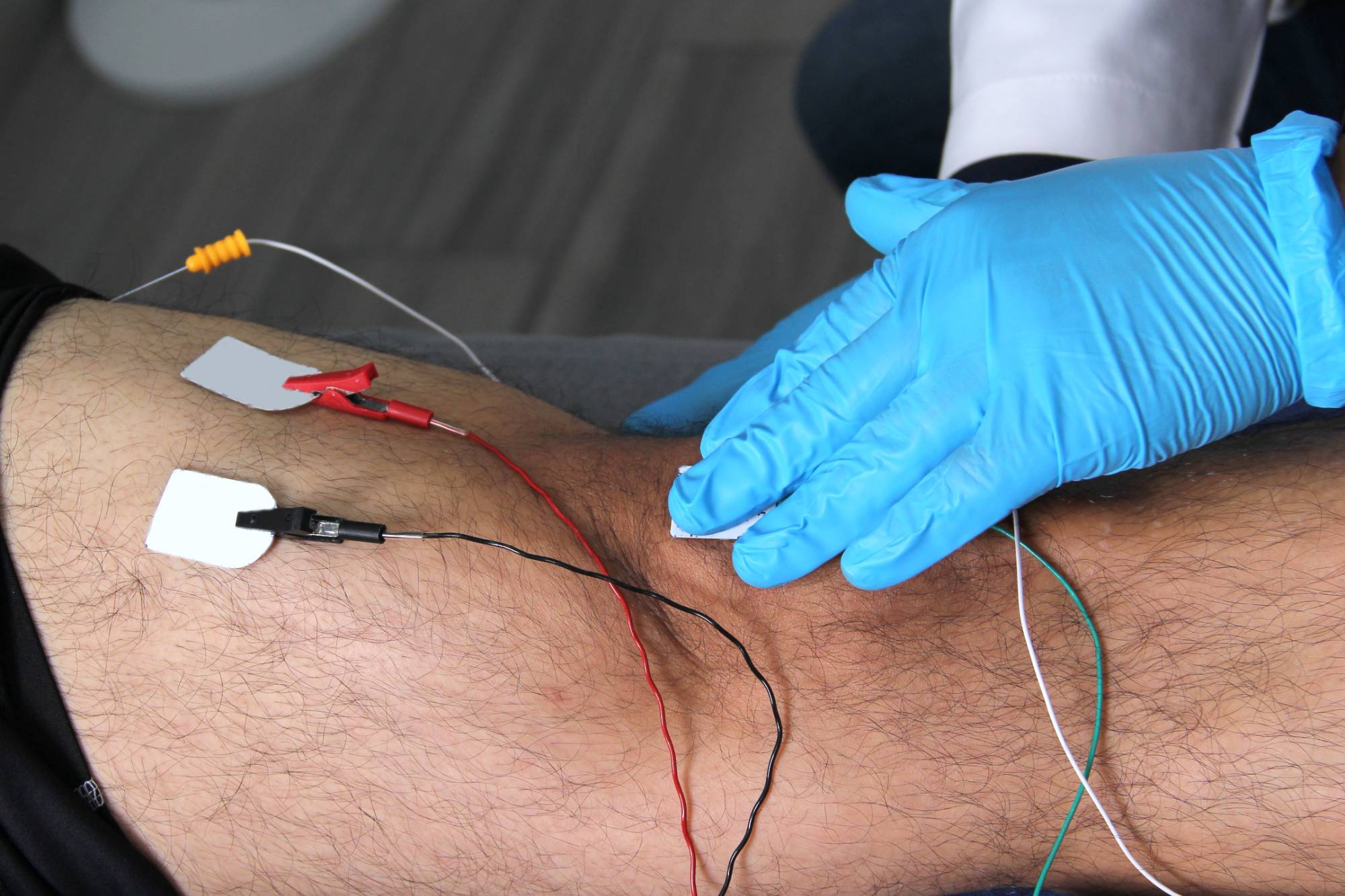
You’ve been dealing with unexplained symptoms long enough. That numbness in your hands, the muscle weakness, the shooting pain down your leg – you need real answers, not more guessing.
EMG testing gives you those answers. When the test is complete, you’ll know exactly which nerves or muscles are affected and how severe the problem is. No more wondering if it’s serious or if it will get worse.
This isn’t just about getting a diagnosis. It’s about getting the right diagnosis so you can move forward with a treatment plan that actually addresses what’s happening in your body. You’ll leave with clear results and a direct path toward feeling better.
NY Spine Medicine has been serving South Florida patients with comprehensive spine and nerve care for years. Our physicians are board-certified specialists who understand exactly what you’re going through.
When you’re dealing with nerve problems, you want someone who has seen it all before. Our team has performed thousands of EMG tests and nerve conduction studies, so we know how to get accurate results while keeping you comfortable.
You’re not just getting a test here. You’re getting answers from doctors who specialize in treating the exact conditions your symptoms might indicate.
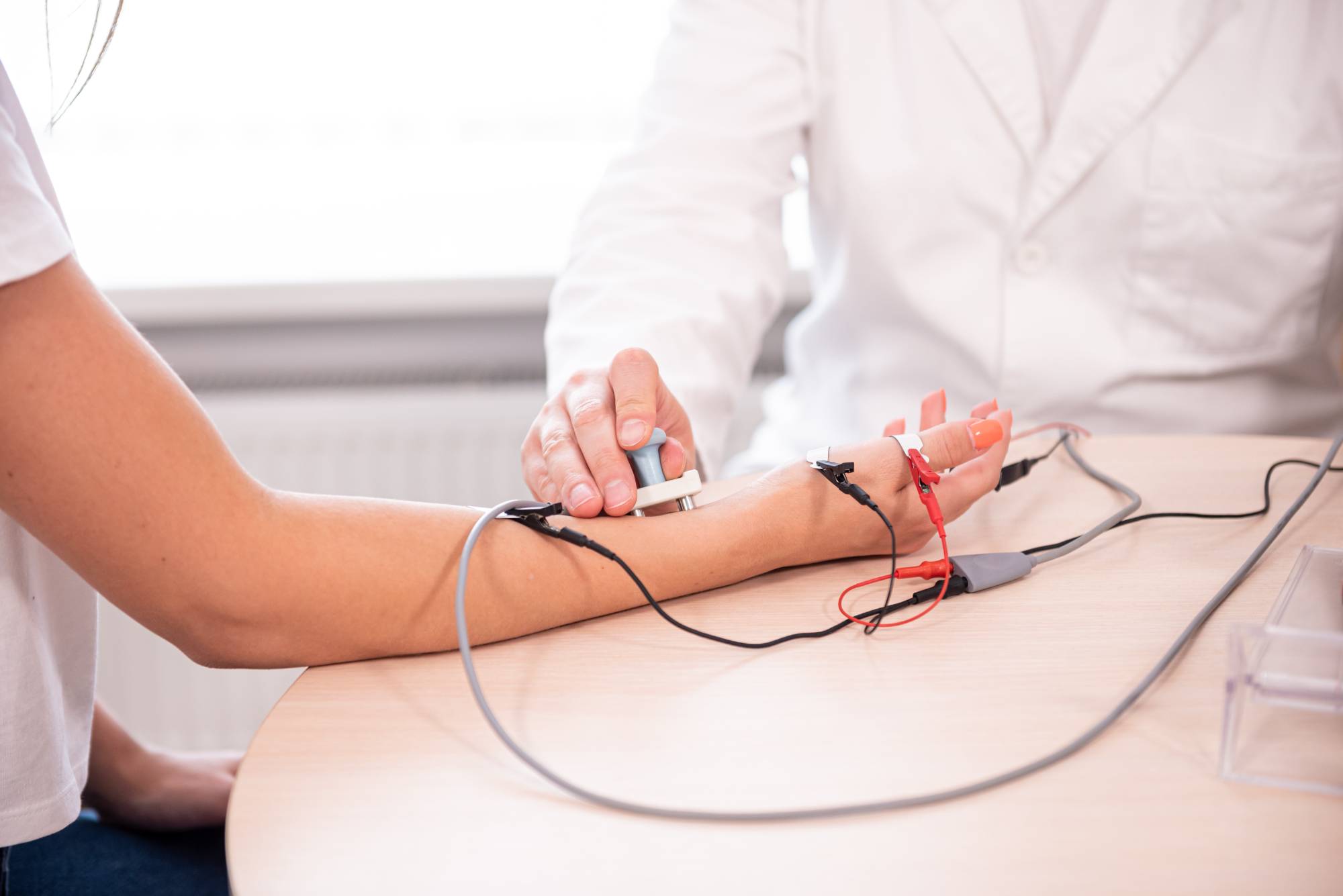
The EMG test has two parts, and both give your doctor different pieces of the puzzle. First comes the nerve conduction study, where small electrical pulses test how well your nerves send signals. You’ll feel a brief tingling sensation, but it’s over quickly.
Next is the electromyography portion, where a thin needle electrode measures electrical activity in your muscles. The needle is much smaller than what’s used for blood draws, and most patients say it feels like a small pinch.
The entire process takes about 30 to 60 minutes depending on which areas need testing. You’ll get your results immediately, and the doctor will explain exactly what we found and what it means for your treatment options.
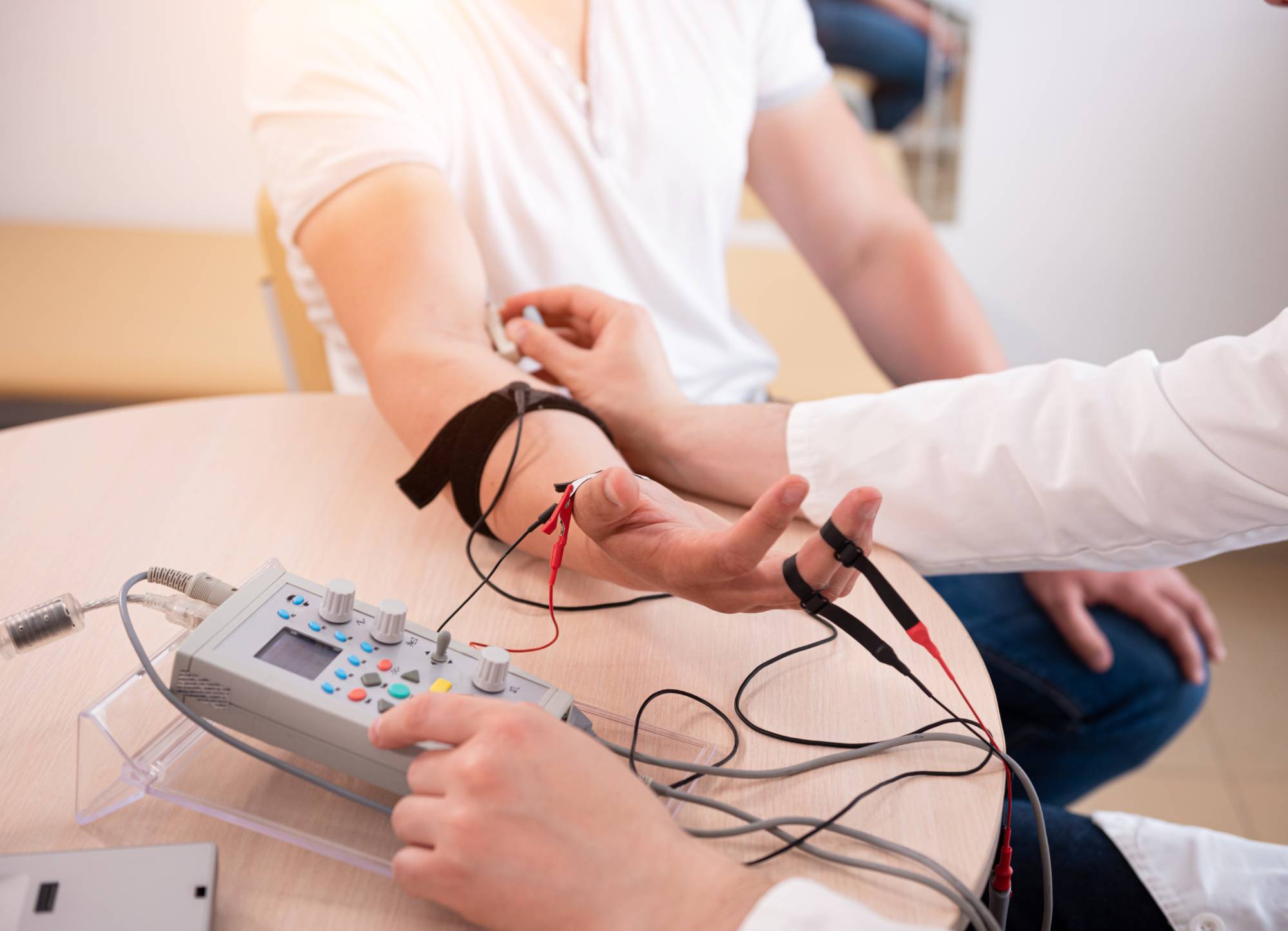
Ready to get started?
Your EMG testing includes both nerve conduction velocity testing and electromyography to give a complete picture of what’s happening. This combination can diagnose conditions like carpal tunnel syndrome, pinched nerves, diabetic neuropathy, muscle disorders, and spinal nerve problems.
The testing covers whatever areas are causing your symptoms – arms, legs, back, or neck. You’ll receive detailed results that show exactly where the problem is located and how severe it is.
Most importantly, you get immediate consultation about your results. The doctor will explain what the findings mean in plain terms and discuss your treatment options right away. No waiting weeks for answers or wondering what comes next.
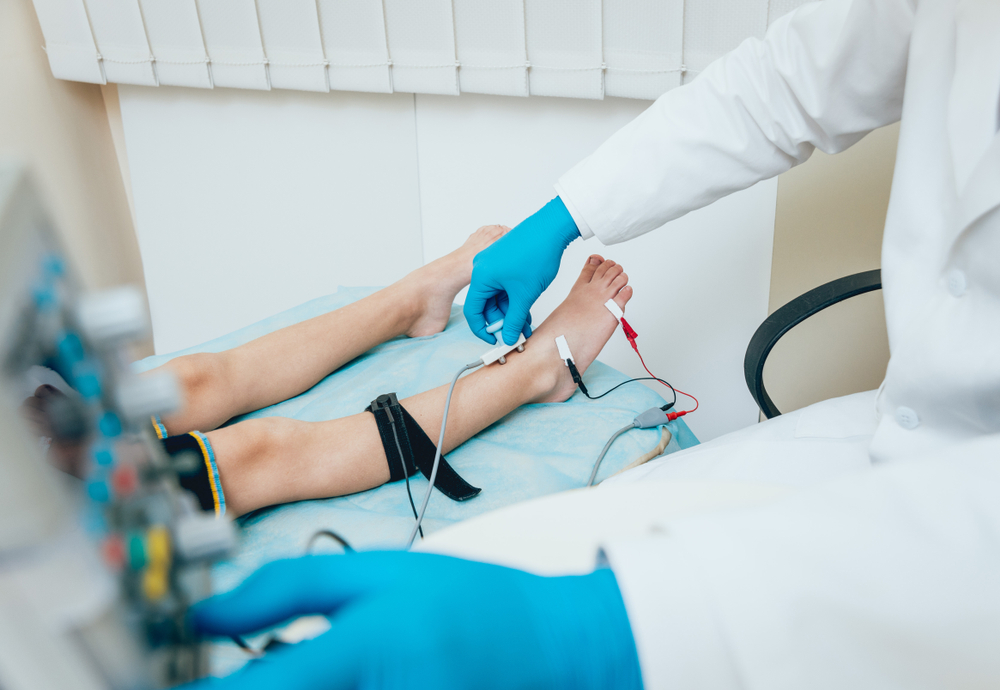
New York:
Florida:
Support